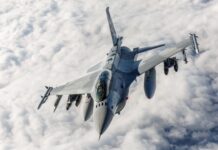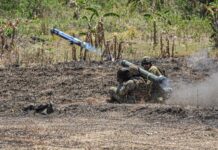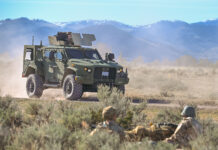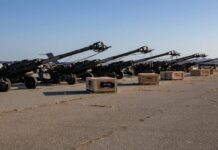The US State Department has approved a Foreign Military Sale (FMS) to Turkey covering 40 new F-16 Block 70s and the modernisation of 79 existing F-16s to F-16V standard, the US Defense Security Co-operation Agency (DSCA) announced on 26 January.
The deal, which is worth USD 23 billion (EUR 21.24 billion), has been passed to the US Congress for final approval.
Turkey had first requested the jets in 2021, but its previous failure to ratify Sweden’s bid to enter NATO had held up any sale, although the US State Department did approve a USD 256 million upgrade package for Turkey’s F-16C/Ds in April 2023.
However, Turkey reversed its decision on 25 January 2024, when the Turkish parliament endorsed Sweden’s NATO accession, and Turkish President Tayyip Erdoğan subsequently also endorsed the move.
The Turkish Air Force is having to operate its F-16s for much longer than it originally expected. Having joined the Lockheed Martin-led F-35 Joint Strike Fighter (JSF) programme in July 2002, initially intending to order 116 F-35As to replace its F-16 fleet, Turkey was ejected from the programme on 17 July 2019 after the government of President Erdoğan refused to cancel a programme to procure the Russian S-400 air defence system that would have compromised the F-35’s stealth characteristics.
Meanwhile, in August 2016 Turkish Aerospace received a design and development contract from the then Turkish Undersecretariat for Defence Industries for a twin-engined indigenous replacement for the F-16 under the TF-X programme. This aircraft, which was officially rolled out on 18 March 2023, was given the name ‘Kaan’ on 1 May 2023. The aircraft was scheduled to make its first flight on 27 December, but the maiden flight was postponed. The Kaan’s entry into service thus remains some years away.
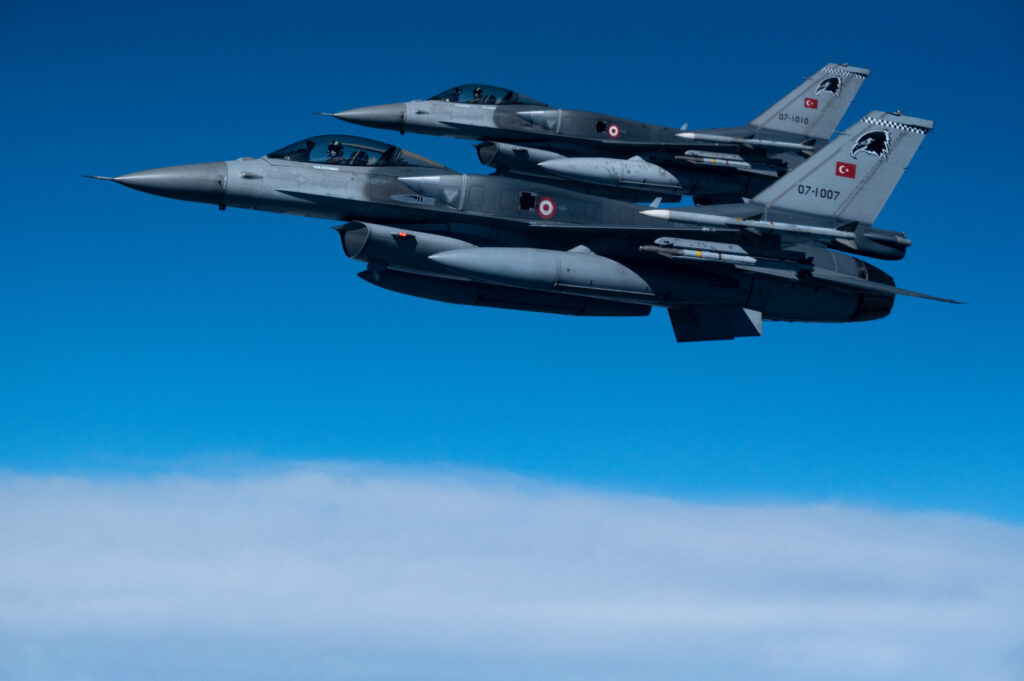
The latest Turkish F-16 FMS will therefore maintain and enhance the Turkish Air Force’s combat air capabilities over the next decade or so. In more specific terms the deal includes: 32 F-16C Block 70s and eight F-16D Block 70s; 48 F110-GE-129D engines (40 installed, 8 spares); 149 Improved Programmable Display Generators (iPDG) (40 installed, 10 spares, 99 for the modernisation programme (79 installed, 20 spares)); 149 AN/APG-83 active electronically scanned-array (AESA) Scalable Agile Beam Radars (SABRs) (40 installed, 10 spares, 99 for the modernisation programme (79 installed, 20 spares)); 169 Modular Mission Computer 7000AHC systems (or available mission computers) (40 installed, 10 spares, 119 for the modernisation programme (79 installed, 40 spares)); 159 Embedded Global Positioning System (GPS) Inertial Navigation Systems (INS) (EGI) with the Selective Availability Anti-Spoofing Module (SAASM) or M-Code capability and Precise Positioning Service (PPS) (40 installed, 8 spares, 111 for the modernisation programme (79 installed, 32 spares)); 168 Integrated Viper Electronic Warfare Suite (IVEWS) or equivalent electronic warfare (EW) systems (40 installed, 10 spares, 118 for the modernisation programme (79 installed, 39 spares)); 858 LAU-129 guided missile launchers; 44 M61 Vulcan cannons (40 installed, four spares); 16 AN/AAQ-33 Sniper Advanced Targeting Pods; 151 Multifunctional Information Distribution System-Joint Tactical Radio Systems (MIDS-JTRS) (40 installed and four ground terminals, eight spares, and 99 for the modernisation programme (79 installed and four ground terminals, 16 spares)).
A sizeable weapons package cover by the deal includes: 952 Advanced Medium Range Air-to-Air Missile (AMRAAM) AIM-120C-8 or equivalent missiles; 96 AMRAAM guidance sections; 864 GBU-39/B Small Diameter Bombs Increment 1 (SDB-1); two GBU-39(T-1)/B SDB-1 guided test vehicles; two GBU-39(T-1)/B SDB-1 practice bombs; 96 AGM-88B High-Speed Anti-Radiation Missiles (HARM); 96 AGM-88E Advanced Anti-Radiation Guided Missiles (AARGM); 10 AARGM captive air training missiles (CATMs); 11 AARGM control sections; 12 AARGM guidance sections; 401 AIM-9X Block II Sidewinder missiles; 12 AIM-9X Block II Sidewinder CATMs; 40 AIM-9X Block II Sidewinder tactical guidance units; 12 AIM-9X Block II Sidewinder CATM guidance units; 12 MK82 inert-filled general-purpose bombs; 850 Joint Direct Attack Munition (JDAM) KMU-556 tail kits for GBU-31 bombs; 200 JDAM KMU-557 tail kits for GBU-31v3s; 384 JDAM KMU-559 tail kits for GBU-32s; three JDAM KMU-572 tail kits for GBU-38 or Laser JDAM GBU-54s; and 1,050 FMU-152 fuzes.
Numerous other systems and programme, logistical, technical and training support are also included.
The principal contractor for the Turkish F-16 deal will be Lockheed Martin out of its facilities in Greenville, South Carolina.










